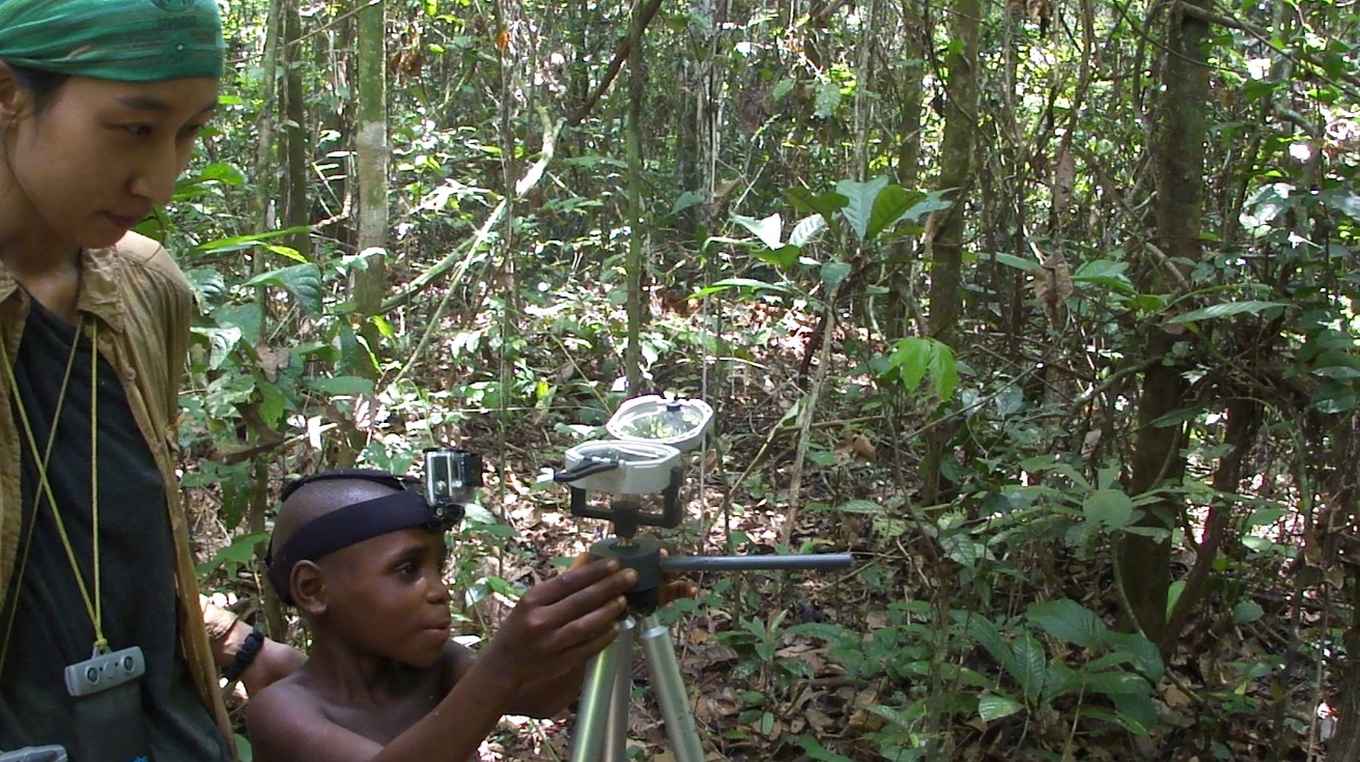First scientific evidence for sun compass use in humans
24 July 2019

Knowing in which direction to move to reach foods or home is important for many animal species, including humans. Orientation abilities are important especially for human foragers who travel long distances for hunting and gathering on a daily basis without aid of navigational technology.
Pointing accuracy
To study the navigation of human foragers in rainforests, the researchers asked Mbendjele BaYaka people in a rainforest in the Republic of Congo to point to distant and out-of-sight target locations, and investigated what affects their pointing accuracy. The Mbendjele BaYaka people live in flat lowland rainforests where orientation is challenging because of heavy vegetation and the absence of distant landmarks such as mountain peaks. People who live in such environment may have started learning how to use the position of the sun to get a direction from a very early age.
The research team conducted 631 pointing tests, including 54 participants of different ages from 6 to 76 years in 66 different locations in rainforests, including their camp. The researchers found that the Mbendjele BaYaka people are highly accurate at pointing to distant and out-of-sight target locations. Crucially, the researchers found that when the sun was visible in the sky, children substantially increased pointing accuracy, especially in distant and less familiar areas, while the adults performed accurately throughout their range also on cloudy days.
Children
‘Unlike the adults who had a very good sense of direction in distant areas, even when they cannot see the sun position at all because of thick clouds, the children had large pointing errors in less familiar areas when they cannot see the sun. However, they improve their performance when they can see the sun.’ says Haneul Jang, who performed this study as part of her PhD project at the Max Planck Institute of Evolutionary Anthropology.
Sex differences
The study was consistent with previous studies that found no sex differences in orientation abilities in human populations where both sexes traveled equal distances away from home as was the case in the Mbendjele. ‘In contrast to men and women in our society the Mbendjele show no difference in the distance that men and women travel away from home, and it is therefore perhaps not surprising that they scored similarly well in orientation tasks. The study informs us once again how important experience is in our cognitive development and makes you worry about what is happening to the brains of people who hardly leave their home or office anymore,’ says Karline Janmaat, main supervisor of the study.
The study provides the first behavioral evidence for sun compass use in humans. ‘We know bees can use the sun to navigate, but for humans, there was surprisingly no scientific evidence yet, nor did we know that young children can already develop this skill at an age of 6 yrs. This study shows that there is still so much to discover and with a high level of urgency. All forests of human rainforest foragers in Congo have been sold to foreign companies, making them not only lose their foraging grounds, but as well their intriguing navigation skills, and with that our insight into the true nature of human intelligence,’ concludes Karline Janmaat.
Publication details
Haneul Jang, Christophe Boesch, Roger Mundry, Vidrich Kandza, and Karline R. L. Janmaat (2019). Sun, age, and test location affect spatial orientation in human foragers in rainforests. Proceedings of the Royal Society B. https://doi.org/10.1098/rspb.2019.0934